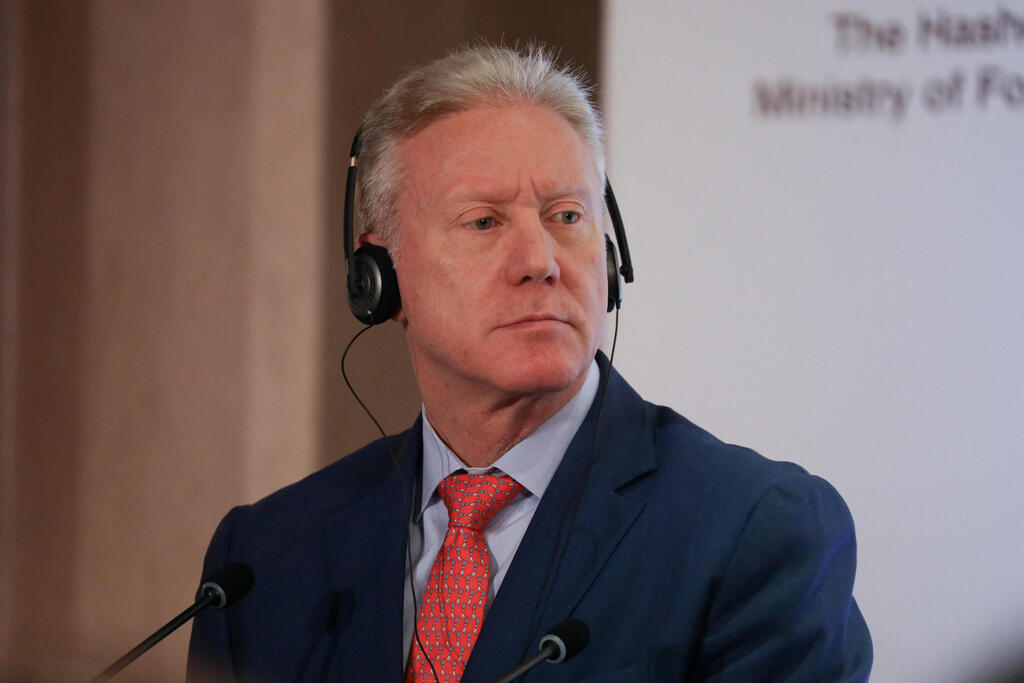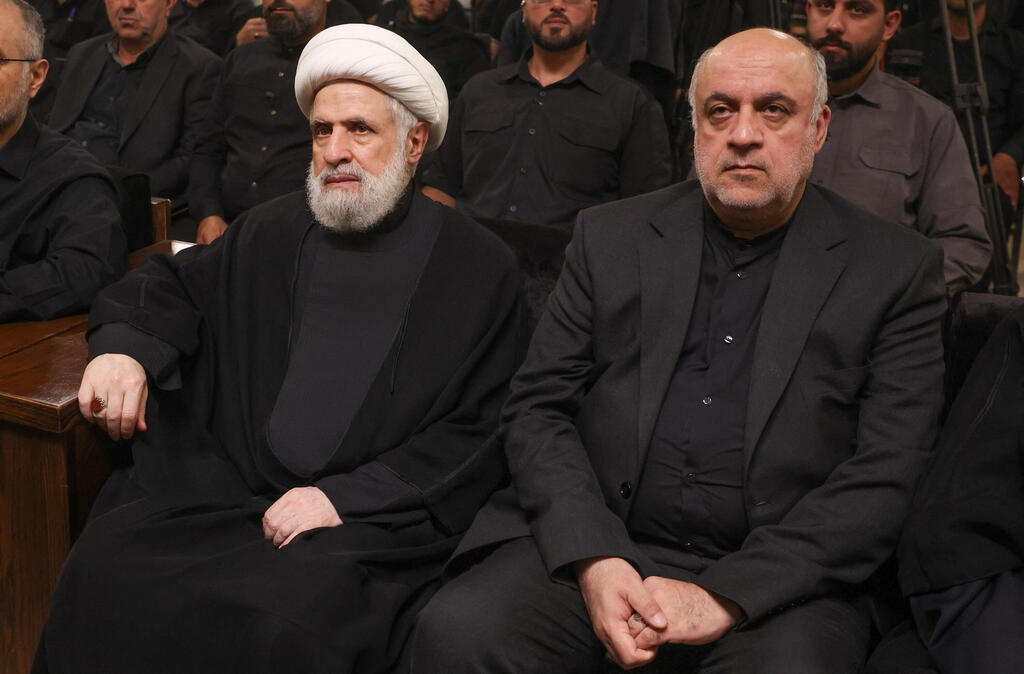Getting your Trinity Audio player ready...
The new Lebanese government is outraged at the Iranian ambassador, accusing him of crossing a red line. On Tuesday morning, the London-based Saudi newspaper Asharq Al-Awsat reported that Foreign Minister Youssef Rajji will summon Iranian Ambassador to Lebanon Mojtaba Amani for a meeting after a controversial post he published four days ago on the social media platform X.
Ambassador Amani was injured during the exploding pager operation against Hezbollah in September 2024. He lost one eye, sustained injuries to the other, and was flown to Iran for medical treatment. He resumed his post in Beirut in December.
On Friday, Amani commented on Lebanon's calls for Hezbollah to disarm, writing: "The project of disarmament is a clear conspiracy against nations. While the U.S. supplies the Zionist enemy with the most advanced weapons and missiles, it prevents other nations from arming themselves and strengthening their armies, pressuring them to reduce or destroy their stockpiles under various pretexts."
Amani also wrote that: "When countries succumb to demands for disarmament, they become vulnerable to attacks and occupation, as seen in Iraq, Libya and Syria. In Iran, we are aware of this conspiracy and its threat to the security of the region's peoples. We warn others not to fall into the trap of the enemies. Maintaining deterrence is the first line of defense for sovereignty and independence, and it must not be compromised."
The post was poorly received by Lebanon’s Foreign Minister Rajji. According to Asharq Al-Awsat, sources in the Lebanese Foreign Ministry indicated that Rajji decided to summon Amani over his remarks. Amani is expected to meet with officials at the ministry within the next two days. The sources added that Amani will be informed of Lebanon's official stance, which rejects his comments and views them as "direct interference in Lebanon's affairs."
Rajji addressed the issue of weapons in Lebanon during a press conference in Cairo alongside Egyptian Foreign Minister Badr Abdel-Atty. "The restriction of weapons in Lebanon is a demand of the state and the Lebanese people, not merely an international demand," he said.
The issue of disarming Hezbollah and transferring weapons to state control has become one of the most sensitive and debated topics in Lebanese politics in recent days. On Sunday, Lebanese President Joseph Aoun clarified: "The Lebanese people do not want war, and the army must be responsible for weapons. Weapons must be restricted to the state alone. We will implement this decision, but we are waiting for the right conditions to determine how to do so. Controversial issues are not discussed in the media but through dialogue with the relevant parties in a practical manner. When I mentioned the issue of weapons in my inauguration speech, it was not just rhetoric. The decision has been made. The train leading Lebanon forward has left the station. No patriot will stand in its way."
Get the Ynetnews app on your smartphone: Google Play: https://bit.ly/4eJ37pE | Apple App Store: https://bit.ly/3ZL7iNv
Aoun’s comments came after a speech by Hezbollah chief Naim Qassem on Friday, in which he said that: "Hezbollah’s weapons are tied to the confrontation with the Israeli enemy." He added that Hezbollah will not allow anyone to disarm it. "These weapons liberated our country and protected its sovereignty. We will confront anyone who attacks the resistance and seeks to disarm us. We advise others not to play this game with us," he said.
The last time an Iranian official was reprimanded by the Lebanese government was in October 2024, during the transitional government led by Najib Mikati. At the time, Iranian Parliament Speaker Mohammad-Bagher Ghalibaf stated in an interview with the French newspaper Le Figaro that Tehran was willing to negotiate with France on the implementation of Resolution 1701 (regarding southern Lebanon). Mikati responded: "We are surprised by the statements of the Iranian Parliament Speaker. This declaration is a blatant interference in Lebanon’s affairs and an attempt to establish unacceptable control."
Mikati also ordered the chargé d'affaires at the Iranian embassy to be summoned for clarification while Amani was recovering from his injuries after the pager attack. Iran later attempted to clarify the remarks, with a source close to Ghalibaf stating: "Ghalibaf affirmed that Iran will support whatever the Lebanese government and Hezbollah agree upon regarding a ceasefire."





